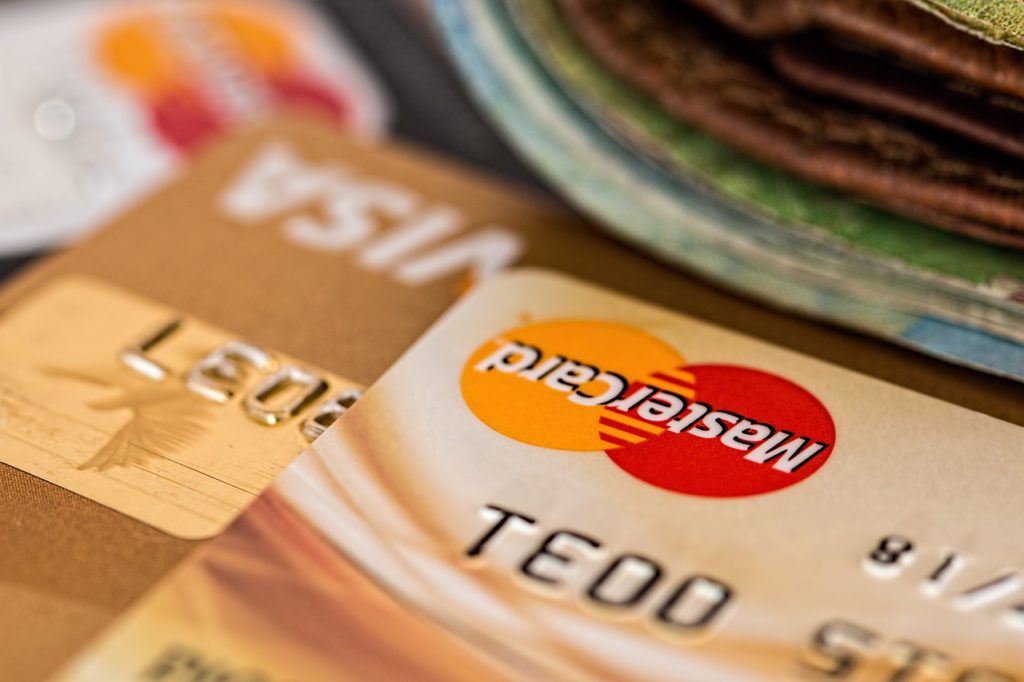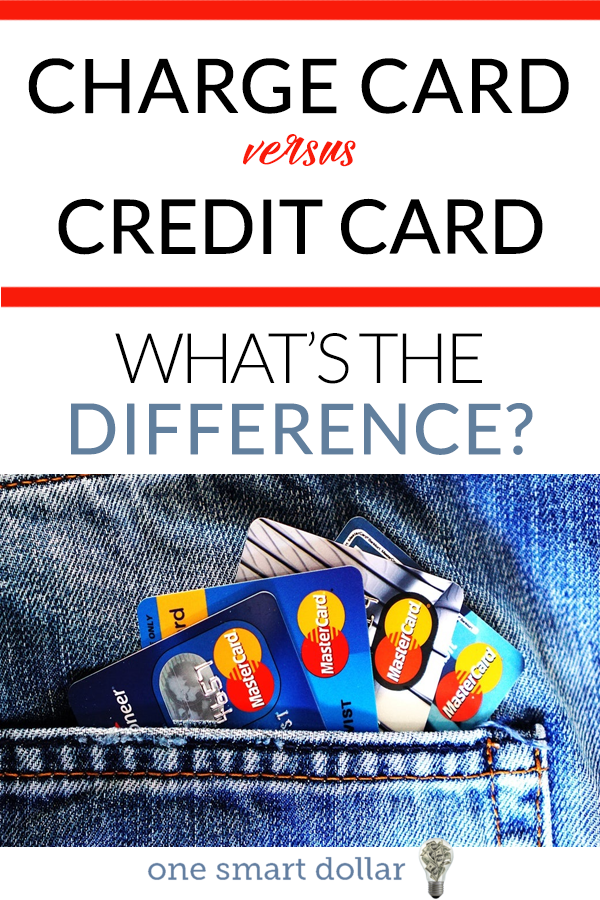
Although they sound similar, a charge card is actually very different than a credit card. Both of them are great tools for building and improving your credit. However, they’re different in the way that you are expected to pay off the purchases you make. Knowing the differences and advantages between the two will help you figure out which is the better financial tool for you!
Credit Card
There are a wide variety of credit cards on the market, and you probably already know the basics of how they work. A credit card lets you make purchases and then bills you for those purchases at a later time, usually once a month. With a credit card, you’re allowed to pay just a minimum amount and then carry over the remaining balance from one month to the next. You’ll also be charged interest on the balance that carries over to the next month.
Credit card applications take into account your credit score and your income. Based on that financial information, the credit card company can place a limit on your balance, called your spending limit. After you reach that maximum, any purchase you try to make with your credit card will be declined. The maximum spending limit with a credit card is always established when you are first issued the card.
Charge Card
A charge card functions exactly like a credit card when you use it to make a purchase. Charge cards also offer similar perks to credit cards, like travel rewards and signup bonuses. The major difference is that a charge card is designed to be paid off immediately. That means that paying off only a portion of your purchases and letting the remaining balance carry over to the next billing cycle isn’t an option with a charge card. So charge card users have to be disciplined enough to ensure that they’ll have enough money on-hand to pay off their charge card balance each month.
Like a credit card application, charge card applications will take into account your credit history and financial resources. However, charge cards don’t have a preset spending limit like credit cards. But watch out – that doesn’t mean that you can use charge cards for unlimited spending! Instead, the spending limit on your charge card may change from time to time based on your use of the card and payment history.
One thing to note about charge cards is that American Express is the only major issuer of charge cards in the US. There are also a few other types of charge cards around, but there aren’t as many options as credit cards offer. Plus, charge cards almost always have a high annual fee of $500 or sometimes more. This means you’ll have to make a point of using your charge card if you want to earn enough rewards to break even.
Advantages of a Credit Card
Most people choose credit cards because they can avoid the high annual fee that often comes with a charge card. There are dozens of credit card options on the market, which makes it easy to find the ideal credit card for you. And, credit card applications are more generous towards people with lower credit scores.
Credit cards offer more flexibility in how you pay off your purchases. Most financial experts recommend paying your credit card in full each month, but if you can’t, your credit card company won’t slap any extra fees on your account. You’ll simply pay interest on the remaining balance and move on with your life. Credit cards make it easier to break up large purchases over a few months, which you definitely couldn’t do with a charge card.
Advantages of a Charge Card
With a credit card, one large purchase may bring you so close to your credit limit that it hurts your credit score. So if you are someone who wants to take advantage of cashback or travel rewards when you make large purchases, a charge card may be the best option for protecting your credit score.
Charge cards are also a great option for people who want to build their credit scores but want to avoid the potential of overspending. Charge cards come with hefty late fees plus interest if you fail to pay off your entire balance, which makes them ideal for someone who might feel tempted to spend too much with a credit card.
How to Choose?
In general, most people are better off with a credit card. This is because you can still pay off your balance every month, but you don’t have to have an amazing credit score or pay a high annual fee to do it. Credit cards also offer more flexibility in choosing different types of perks. But, if you’re someone who makes high-volume purchases on a regular basis and pays them off right away, who also wants to ensure your credit score stays pristine, a charge card is likely a better option for you.

